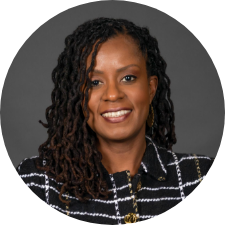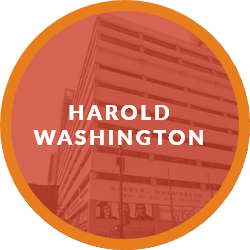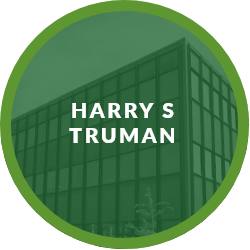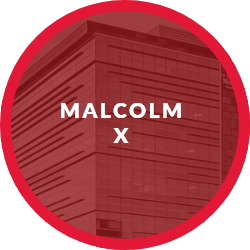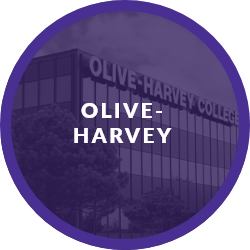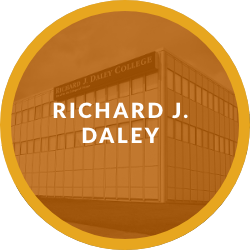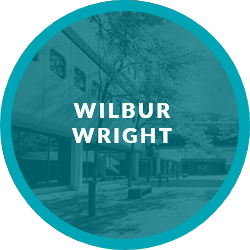February 2024
Greetings Kennedy-King College community and friends:
In 2020, Kennedy-King College launched Our Path Forward, a five-year strategic plan that outlines our goals and key initiatives through 2025. This plan was developed through a rigorous and inclusive process that engaged an array of faculty, staff, and students to reflect upon the College’s remarkable history and to imagine unfettered potential for its future while crafting a roadmap to realize that vision. We remain an institution committed to excellence in education as a culturally diverse institution. We leverage our core values of integrity; student-centered culture; diversity; fiscal stewardship; and excellence as we develop well-educated, well-rounded students who are prepared for success and leadership.
YEAR IN REVIEW
As we continued implementation of Our Path Forward, we have remained vigilant to align our resources – financial, human, and social – toward the Plan’s six Strategic Levers. This alignment has generated tangible results.
Equity. Kennedy‐King College has ambitious goals to close the equity gap and, this year, achieved a 3% increase in its retention of first-year Black students into a second year. Broadly, we endeavor to mitigate barriers to students who are parenting, who experience learning challenges, and who require additional financial support to realize their academic goals. This year, we established a partnership with the Urban Institute to become a Parent-Friendly Campus. Through a series of focus groups and surveys, we are identifying the specific needs of our parenting students – nearly 50% of our student population – so that we can help them to successfully engage as parents and as learners. We were also accepted into the Achieving the Dream Advancing Equitable Outcomes cohort which guides a process of intensive introspection into our practices that support or impede successful outcomes for our Black and Latinx students
Economic Responsiveness. As home to over 60 workforce‐focused certificate and degree programs, it has been the College’s priority to ensure that those programs are high‐quality and responsive to employers’ rapidly evolving needs. Each of our Career and Technical Education programs has an Advisory Council to ensure its relevance and viability. As a result of this insight and feedback, we have made timely enhancements to offerings in our automotive technology department, preparing faculty to deliver a vinyl wrap curriculum, and to our HVAC program as we have laid the groundwork to implement a Building Automation Systems laboratory. We launched new programs in Construction Trades and Culinary Arts (including a Spanish-language program) to bridge students in the Adult Education program into college credit courses. Partnerships with industry continue to propel our students’ success. A collaboration with C3 Presents and Lollapalooza allowed us to develop and launch “LollaU” – a course to prepare students for careers in music festival production, which resulted in five paid internships at Lollapalooza 2023 and two extending into the academic year, beyond the festival’s end.
Culture of Excellence. Kennedy‐King College strives to deliver a range of experiences at the highest level of quality. We value the voices of our faculty as teaching professionals and as subject matter experts and, as such, have earmarked $500,000 in grant funds to establish the Faculty Innovation Fund. This mini-grant program will support faculty-led initiatives to advance instructional excellence and student learning. In addition, the College continued programming via the Center of Equity in Creative Arts (CECA) under the leadership of its inaugural Executive Director.
Institutional Health. The College continues to be a responsible fiscal steward of the public funds that comprise its operating budget. However, we have made a successful concerted effort to secure public and private funding to support program innovations, yielding a grants and gifts portfolio of over $12M in the 2023-2024 fiscal year. We are intentional about allocating these funds to the areas that will have the greatest impact on students, aligning expenditures to our strategic levers and equity goals. Our primary areas of focus are on faculty innovation, faculty and staff professional development, student scholarships, emergency aid, and parenting students. Grant funds have allowed us to create a Student Emergency Fund and to earmark an additional $1M in student scholarships, including stipend support for students engaged in unpaid work-based learning experiences.
Collaboration. KKC has created intentional opportunities for cross-college communication and planning. We leverage our All-Campus Meetings as an opportunity to elicit feedback into operations, academic programs, and co-curricular activities. This year, inspired by our continuous growth in student enrollment – up 19% in Spring 2024, we established a Retention Committee to convene faculty, staff, and administrators to set the strategic direction for retention initiatives, ensuring alignment with the institution’s overall goals, and integrating efforts across different areas. Also, this year, the College conceptualized and created a timeline for the development of a College Senate to allow cross-functional engagement and input into matters of college-wide impact. The primary roles of the KKC Senate will be to address and advance matters of importance to staff and students; to improve delivery of services to the College’s constituents; and to make policy recommendations to the President. The Senate, established in the 2024 academic year, will become fully functional in the upcoming year.
Exceptional Student Experience. Kennedy‐King College ensures that students have experiences inside and outside the classroom that promote a sense of belonging as a member of the college community, and that are supportive of their academic, social, and professional well‐being. This year, we hosted a First-Year Student Convocation designed to begin the acclimation process for new students – many of whom are among the first in their families to attend college – orienting them to college expectations, resources, and networks and reinstating an event that had not been hosted for several years. In addition, the First-Year Experience program piloted a mentoring program for students, generating demonstrable positive impact on that group’s success and retention. We have invested in facilities upgrades and enhancements in our student-facing spaces including a welcoming refresh of our admissions and advising areas, gymnasium, and student café, as well as the creation of a new student gathering space. In addition, as we celebrated another year of record growth in our Early College program – a 56% increase from last year – we secured grant funding to make quality- and capacity-enhancing investments in personnel and training.
THE YEAR AHEAD
We continue to be laser-focused on ensuring that our Centers of Excellence live up to that nomenclature. The Washburne Culinary and Hospitality Institute will reopen Sikia, KKC’s student-run restaurant, for the first time since the pandemic prompted its closure. We have launched a refresh of the dining space and kitchen facilities to prepare to welcome the community back to this much-missed resource. At Dawson Technical Institute, we will continue to upgrade our teaching and co-curricular facilities, leveraging operating and grant funds such as the Workforce Equity Initiative and Trade School Grant. We are also embarking upon a strategic reimagining of WKKC, our radio station, with a listening tour and exploration of state-of-the art exemplars.
This upcoming academic year, we are eager to implement new academic and career-focused programs. The College will launch a Nursing Pathway, opening a Basic Nurse Assistant (BNA) program in Fall 2024. Investments are being made to establish the Practical Nursing (PN) and Associate Degree in Nursing (ADN) programs on the KKC campus in collaboration with Malcolm X College, allowing an access point to a lucrative career right here on the South Side of Chicago. We also plan to launch a new, fully-online certificate program in Africana Studies that will allow KKC to reach students across the city and across the region, as well as an Associate Degree program in Community Organizing in collaboration with Teamwork Englewood, a valued community partner.
While our plan to offer a broad array of new and reimagined programs is laudable, we know that our students are not sufficiently served if they do not have the necessary supports to be successful. In the year ahead, we will redouble our efforts to support students in the ways that they request. Over half of our students have reported that they currently or recently experienced food and housing insecurity. In response, we are partnering with the Greater Chicagoland Food Depository to meet students’ needs today and to build resources and supports to mitigate those needs moving forward. We are also partnering with a community resource to provide shower facilities, essential toiletries and personal items to students who are without stable housing.
This final year of implementation of Our Path Forward coincides with our final phase of college-wide preparation for the reaffirmation of our accreditation by the Higher Learning Commission in 2025. This timing provides a fertile context for intensified reflection and accountability as we examine the alignment of our Strategic Levers with the accreditation criteria that denote our excellence as an institution. As a reflective institution, we know that we learn valuable lessons when we engage our faculty, staff, students, and essential partners. In the spirit of continuous improvement, we will keep listening to our students and community members through our Community Advisory Council, ongoing focus groups, administration of surveys such as the Community College Survey of Student Engagement (CCSSE), and other forums. This inquiry yields essential insights as we leverage our energy, resources, and momentum toward initiatives that maintain Kennedy-King College as a valued and responsive community anchor.
We are honored to have you on this journey with us!
In partnership,
Dr. Katonja Webb Walker
President







